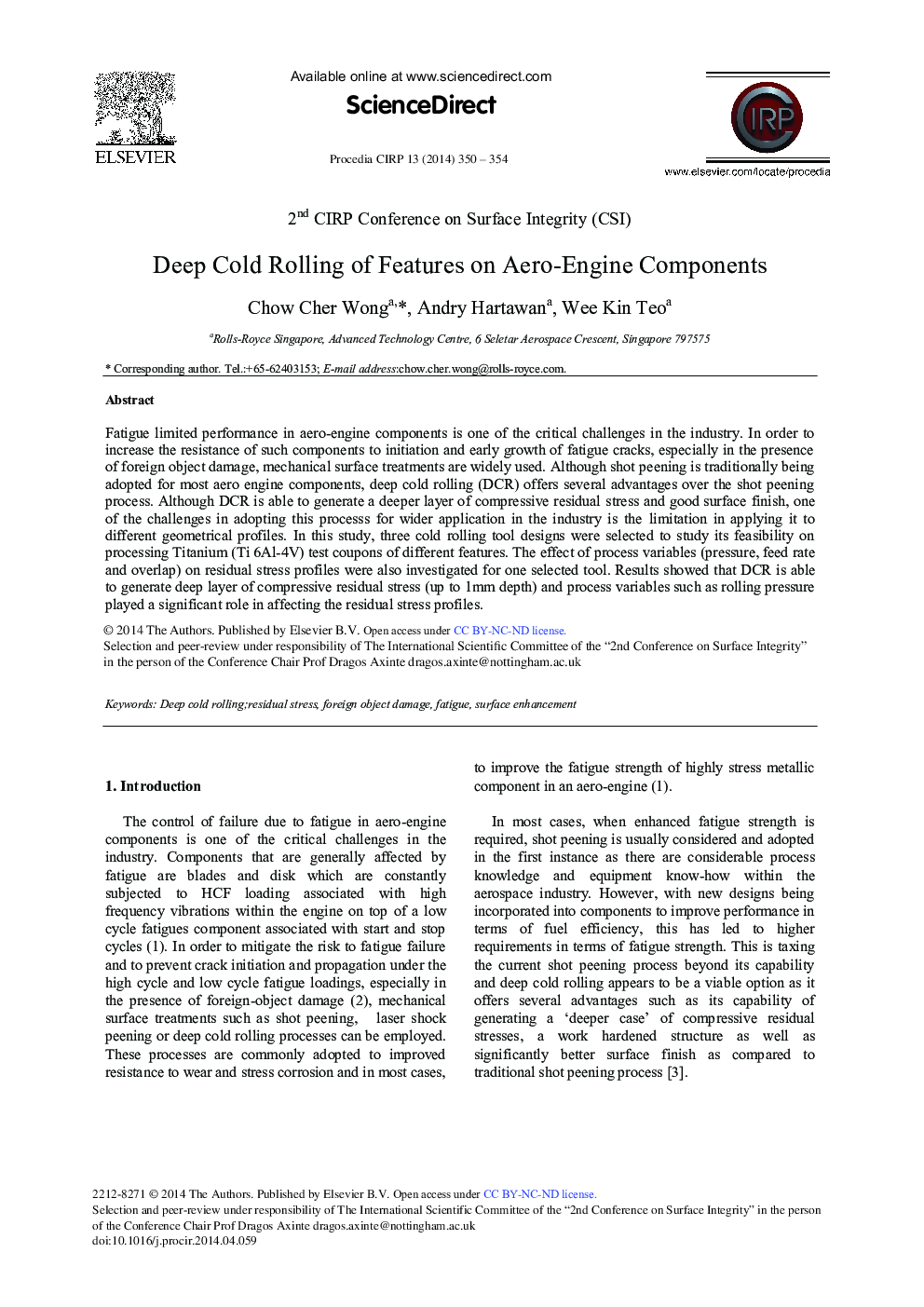| Article ID | Journal | Published Year | Pages | File Type |
|---|---|---|---|---|
| 1700996 | Procedia CIRP | 2014 | 5 Pages |
Abstract
Fatigue limited performance in aero-engine components is one of the critical challenges in the industry. In order to increase the resistance of such components to initiation and early growth of fatigue cracks, especially in the presence of foreign object damage, mechanical surface treatments are widely used. Although shot peening is traditionally being adopted for most aero engine components, deep cold rolling (DCR) offers several advantages over the shot peening process. Although DCR is able to generate a deeper layer of compressive residual stress and good surface finish, one of the challenges in adopting this processs for wider application in the industry is the limitation in applying it to different geometrical profiles. In this study, three cold rolling tool designs were selected to study its feasibility on processing Titanium (Ti 6Al-4Â V) test coupons of different features. The effect of process variables (pressure, feed rate and overlap) on residual stress profiles were also investigated for one selected tool. Results showed that DCR is able to generate deep layer of compressive residual stress (up to 1Â mm depth) and process variables such as rolling pressure played a significant role in affecting the residual stress profiles.
Related Topics
Physical Sciences and Engineering
Engineering
Industrial and Manufacturing Engineering
Authors
Chow Cher Wong, Andry Hartawan, Wee Kin Teo,
